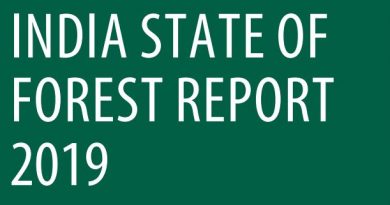World Trilemma Index-India Improves Ranking To Top 10

The World Energy Council has today published its 11th annual World Energy Trilemma Index. The Index represents the world’s most comprehensive independent ranking of countries’ sustainable energy policies and evaluates how well 127 countries balance the three connected challenges for a clean and just energy future: energy security, energy equity and environmental sustainability of energy systems, also known as the “Energy Trilemma”.
Dr Angela Wilkinson, Secretary General of the World Energy Council, commented:
“The World Energy Trilemma Index provides a useful reminder of how important it is for policymakers to address inertia and make progress by taking a more holistic view of energy through the three lenses of the World Energy Trilemma. Only then will societies succeed in recovering from crisis, repairing the planet and renewing the wellbeing of societies.”
“Today’s energy landscape is crowded, competitive and increasingly costly. Confusion, confrontation and extreme polarisation have become commonplace. The world needs more sustainable energy. Our relationship with energy and, consequently, with each other, is shifting and transforming. There is an urgent need to better prepare societies for clean and just energy transitions and to involve more people and diverse communities in the process. The challenge to develop shared appreciation and navigate the critical role of energy in everyday life has never been greater.”
“Energy literacy remains poor across many stakeholder groups. There is a general lack of appreciation and understanding of the connections – between climate neutrality, affordability and social justice and in relating matters of price, cost and value.“
By analysing historic trends, the Index enables policymakers and stakeholders to track national policy performance over time and cross reference performance and progress with other nations.
This year’s global assessment indicates a mixed picture. As the current global gas crunch puts pressure on supplies, the stalled progress in Energy Security, with a static score of 85 out of 100, provides a timely context to the foundations for regional supply shortages and market volatility.
The Index also shows that the score in Energy Equity is 75 out of 100, with more than 700 million people on the planet still lacking basic access to any electricity or clean fuels. Referring to both energy access and affordability, the Energy Equity pillar highlights that whilst many countries may enjoy universal access to energy, notably OECD countries, many people do not have access to energy whatsoever. Energy affordability is not solely an issue for developing countries and energy poverty extends to all geographies, including the most developed nations.
Environmental Sustainability also demonstrates slow progress, with an overall score of 66/100. This is despite 50% plus growth in worldwide renewable capacity with renewables now accounting for over 80% of new capacity additions. However, global carbon dioxide emissions have continued to rise. As the world recovers from the impacts of COVID-19 and looks to restart economic and industrial activity, it remains to be seen how significant COP26 will prove in bucking this trend and accelerating decarbonisation of the global energy mix.
2021’s edition of the Index shows that OECD countries, particularly in Europe, with longstanding and active energy policies, continue to dominate the top 10 overall rankings. A new record 9 countries have received the top AAA balance grade, representing top quartile performance in every dimension.
As host of the next UN Climate Conference, the UK ranks 4th in in terms of overall performance in the Index. The UK’s absence from the global top ten in the energy security category helps explain its exposure to the current global gas crunch and skyrocketing energy prices.
As we have seen over recent weeks, best performers are not immune to shocks to their energy systems.
A notable addition to the top ten list of overall improvers in the Trilemma this year was China.




